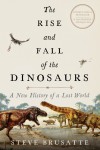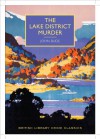Currently Reading






Find me elsewhere:
24 Festive Tasks: Door 19 - Festivus, Task 1 (Airing of Grievances)
I've been blessed with a pretty amazing reading year in which disappointments were few and far between -- so it was fortunately not difficult at all to spot the small number of candidates for my "grievances" list when scrolling back through my BookLikes shelves. They are / were, in no particular order (except for no. 1):
Margaret Drabble: The Red Queen
Pretentious, artificial, historically incorrect and, most of all, monumentally self-involved. If this is the type of book that Drabble's sister A.S. Byatt criticizes under the byword "faction", then I'm with Byatt all the way -- and that statement is far from a given where Byatt's own fiction is concerned. Someday I'll seek out the actual memoirs of the Crown Princess whose story inspired this poor excuse for a novel. I doubt I'll go anywhere near Drabble's writing again anytime soon, however.
Original review HERE.
Stephen Brusatte: The Rise and Fall of the Dinosaurs
Speaking of monumentally self-involved, this wasn't much better than Drabble's book in that particular department. It does contain the actual bit of paleonthological information, but that bit is essentially hidden between tales of Steve the Great and his almost-as-great famous friends and acquaintances, as well as Brusatte's pet theories -- pun not intended -- and a lot of generalization on subjects that don't necessarily lend themselves to same. (Also, Brusatte obviously loves T-Rex ... and his obsession with the Rex's "puny arms" has me wondering about the wider psychological implications of Brusatte's fascination with the big bad boys (and girls) of dino-dom.)
Original review HERE.
Jennifer Wright: Get Well Soon
Our third candidate under the "monumentally self-involved" header. Leaving aside that the book's subtitle ("History's Worst Plagues and the Heroes Who Fought Them") is a complete misnomer, this, too, is chiefly about the bright and sparky Ms. Wright and her opinions, frequently at best shallow research, and largely inappropriate oh-so-clever (NOT) quips, asides, and pop culture references. At least two of the "plagues" mentioned in the book actually are not epidemics at all (which shows that indeterminate "medical horrors" is what Wright was truly after), and on the epidemics that do get mentioned, entire chapters of medical research and the world-renowned scientists chiefly responsible for that research don't even get so much as a passing mention. Virtually the book's only saving grace was Wright's stance against anti-vaxxers and similar superstitious nonsense -- the sum total of which, however, would easily have fit into one of the magazine articles that Wright produces when she's not pretending she is a science writer.
Original review HERE.
Ethel Lina White: The Lady Vanishes
One of the rare examples where I like the movie adaptation (by the one and only Alfred Hitchcock, no less) vastly better than the literary original. "Woman in peril" stories aren't my cup of tea to begin with, but leaving aside that I rather like Hitch's spin on the conspiracy at the heart of the book, most of all, the two protagonists (Margaret Lockwood's Iris and her "knight in shining armour", portrayed by Michael Redgrave in the movie) come across as much more likeable and believable in the screen version -- the guy in particular is nothing more than a pretentious prick in the book, for however much he's supposed to be the Hero and Iris's big savior and love interest. All in all, Hitchcock elevated what seems to amount at best to B movie material on paper into one of his early masterpieces -- no small feat on his part.
Original review HERE.
Francine Matthews: The Cutout
Not strictly a disappointment, as I was a bit skeptical going in anyway; however, it had an interesting premise and started well and thus got my hopes up to a certain extent -- only to deflate them pretty thoroughly, alas, before it had really gotten going. Totalitarian political machinations in a post-collapse-of-the-Wall Europe may have sounded interesting when the book was written in the early 2000s -- and sound even more up-to-date these days, in fact -- but it would have required a different writer to pull this off convincingly. Matthews has no understanding of Germany, German society and politics, nor that of the Eastern European countries where her book is set (if she ever lived in Berlin or any of the book's other main locations, she obviously had virtually zero interactions with anybody other than her American intelligence colleagues), and unfortunately, name-dropping half a street atlas' worth of names of tourist sites and major traffic arteries is no replacement for a believable reproduction of local atmosphere. Similarly, not one of the characters is anything other than a two-dimensional cipher, and by the time the book reaches its end, it degenerates into the cheapest of cheap spy thriller clichés once and for all.
Original review (of sorts) HERE.
Honorable mentions:
(Or would that be "dishonorable mentions"?)
John Bude: The Lake District Murder
I already used this for the task of finding something redeeming in an otherwise disappointing book (International Day of Tolerance / Door 6, Task 1), so I won't formally use it again in this particular context -- besides, unlike the five above-mentioned books it didn't actually make me angry ... it just fell flat of what it could have been.
Original review HERE.
Joanne Fluke / Laura Levine / Leslie Meier: Candy Cane Murder
A huge disappointment only considering how popular these three ladies' books are (particularly so, Fluke's) -- ultimately, I guess this was nothing more than a confirmation of the fact that cozy mysteries aren't actually my kind of thing (with the sole exception of Donna Andrews's Meg Langslow series). Of the three entries, Meier's was by far the weakest, but I neither cared particularly for Fluke's nor ultimately for Levine's, either -- though in the sense of "amongst the blind, the one-eyed man is king", Levine's was the strongest entry in an overall weak threesome.
Original review HERE.















 13
13  7
7 